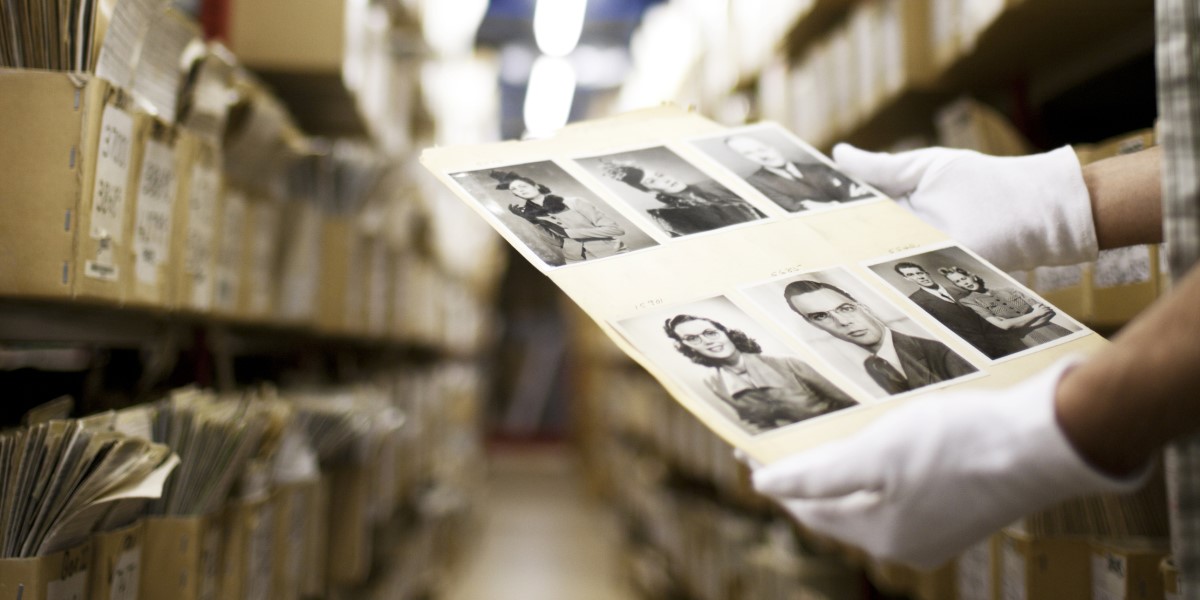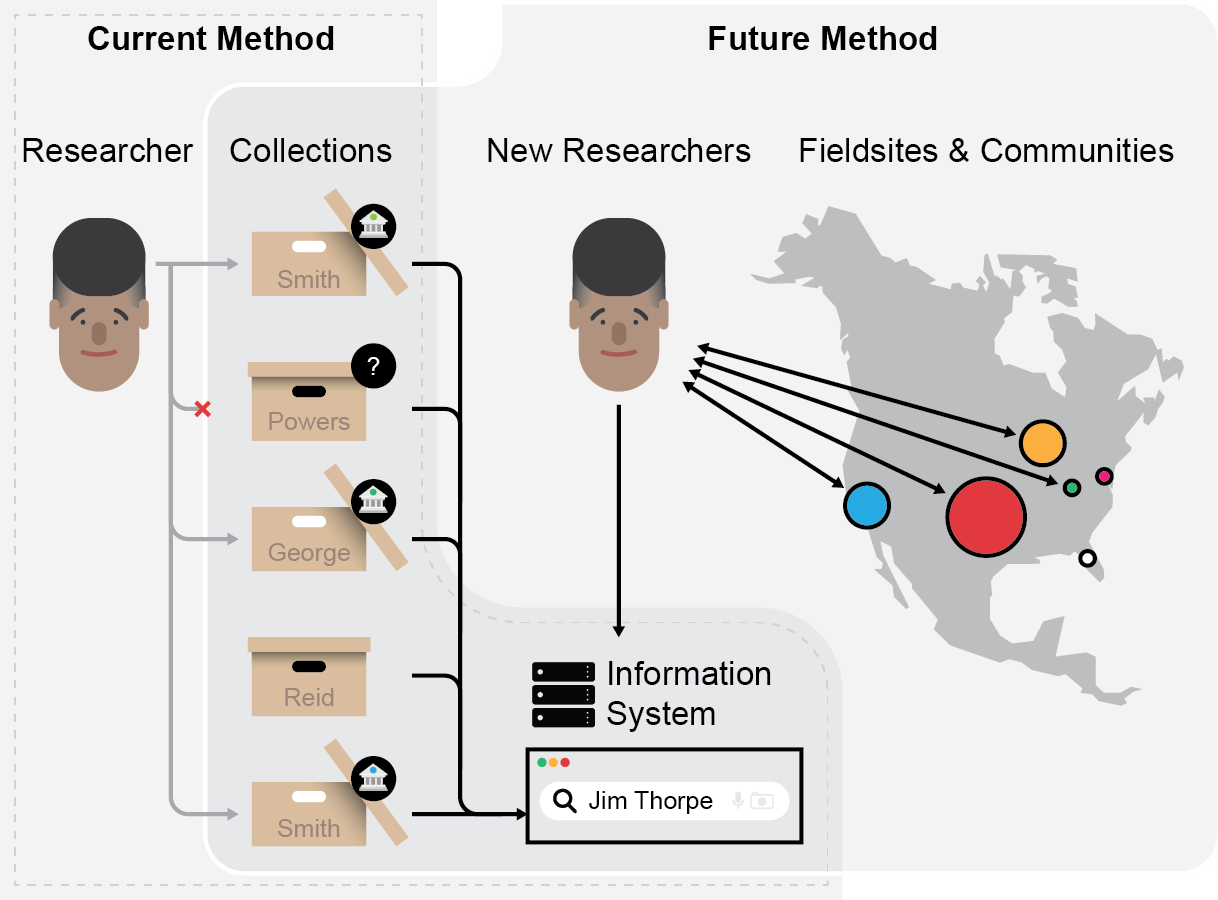Diana Marsh and Katrina Fenlon are leading this NSF funded project

Hulton Archives (iStock)
University of Maryland College of Information Studies (INFO) Assistant Professors Diana Marsh (PI) and Katrina Fenlon (Co-PI) received a $349,922 grant from the National Science Foundation (NSF) for their project, “Building a Sustainable Future for Anthropology’s Archives.”
The project aims to uncover how to make unpublished archival materials—which are often not digitized and difficult to find online—more accessible to researchers and communities through web search.
Archival materials such as field notebooks, letters, photographs, sound and film recordings, and other documents are crucial to anthropology research, but are often not digitized, according to Marsh and Fenlon. This means that these materials can become very difficult for any public, non-affiliated, or future parties to access them or even be aware that they exist.
“We’re very grateful to the NSF for supporting this exploratory research,” says Marsh. “Right now, there’s a lot of exciting work happening with digital archives and what we call ‘born digital’ materials, but most historical information is still in brick and mortar institutional archives, which are getting short shrift. We want all that analog data hooked up to the web, to Wikidata and other linked data platforms, and to aggregated search systems.”
“Many disciplines are a crossroads in how they understand and use data and primary sources. At the same time, increasing public access—to research, data, and cultural heritage—is a national priority,” says Fenlon. “We are hopeful that the approaches we are exploring for anthropology will apply broadly to data and collections in many disciplines.”
This project will develop and test best practices for digitizing and archiving these types of original source materials across a range of formats so that they become findable and reusable data sources. Conversely, Marsh and Fenlon will also work to better understand the barriers to achieving this.
Another key element of the project is determining how these digital records archives can then utilize emergent linked open data infrastructures to support actionable and meaningful connections among disparate archives—creating broad searchability and access to records.

Image illustrating creating broad searchability and access to records.
Among the intended applications for this, is making primary source material more accessible for groups such as educators, genealogists, students, community advocates, and artists, as well as descendant Native and Indigenous communities. This builds on Marsh’s work studying how heritage institutions share information with communities and the public. This also builds upon Fenlon’s research on how scientists reuse historical data to support active and ongoing scientific research across disciplines. Fenlon, Co-Director of the INFO college’s Master of Library and Information Science program, has particular interest in the future research and learning opportunities this will afford LIS students.
The team is conducting focus groups, evaluating test collections, assessing new open-access platforms, developing training materials, strengthening partnerships between researchers and archives, and hosting a virtual symposium. The project will contribute to important debates surrounding the methods by which raw data is archived and shared—and promises to play a key role in shaping future best practices for anthropology’s archival information infrastructure.